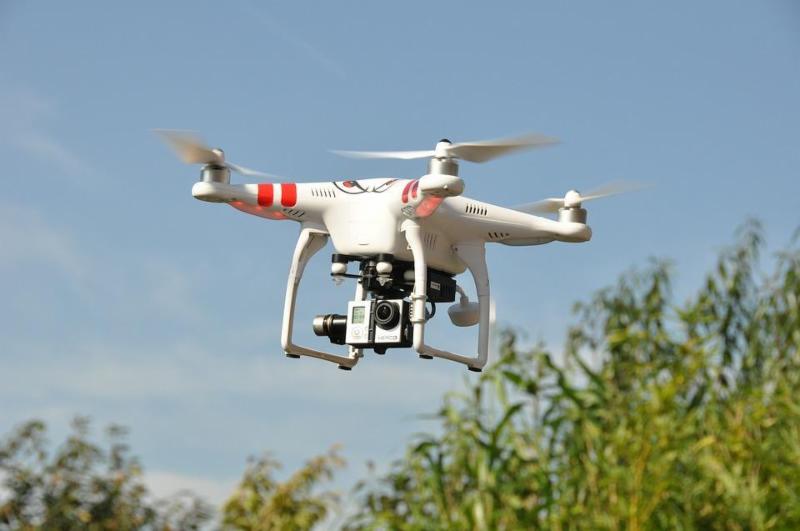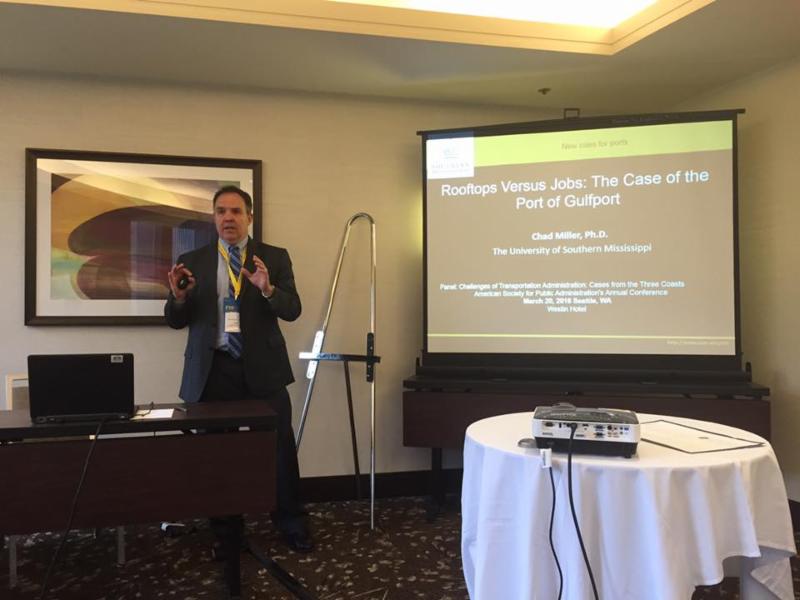Events of Interest
Webinars of Interest:
Nov. 11-13, 2016
Harrisburg, PA
Oct 13-16, 2016
Raleigh, NC
October 13th to 16th
Jan. 10-14, 2017
Washington, D.C
ASPA 2017 Annual Conference
Mar17-21, 2017
Atlanta, GA
|
|
STPA Student Paper Competition Call
STPA invites undergraduate and graduate students who have written research papers related to transportation policy and administration to submit their papers for consideration. Deadline for receiving papers is February 8, 2017.
For more details
.
|
|
Call for Papers, Journal of Public Budgeting, Accounting & Financial Management
Symposium Issue - Public Infrastructure Finance Theory and Practice
Guest Editor: Dr. Can Chen, Florida International University
The Journal of Public Budgeting, Accounting and Financial Management invites scholars and practitioners to submit articles on topics related to the theory and practice of public infrastructure finance. An efficient and well-maintained public infrastructure system is critical for the nation's economy and quality of life.
However, America's physical plant is challenged. Expert opinion and scholarly research suggest tens, if not hundreds of billions dollars, are needed to refurbish and enhance roads, sewers, and other capital facilities. These well-documented shortfalls call for scholarly research focused on the finance and maintenance of these cornerstones.
Suggested topics include, but are not limited to:
− Theory of public infrastructure finance;
− Fiscal federalism and infrastructure finance;
− Fiscal sustainability and public infrastructure finance reform;
− Innovative infrastructure finance and funding techniques and practices;
− Public-private partnerships and infrastructure finance;
− Debt financing for public infrastructure projects;
− Case studies of infrastructure finance in specific sectors (e.g., roads, transit, airports, drinking water, wastewater, public schools, energy, and etc.).
Articles should be submitted by September 15, 2016 through the journal website (indicate it belongs to this symposium) and comply with JPBAFM's submission guidelines.
Questions should be directed to the guest editor Dr. Can Chen, [email protected]; Assistant Professor, Department of Public Administration, Steven
|
|
Nominations Sought for Truitt-Felbinger Award
The award was established in memory of Lawrence J. Truitt and Claire Felbinger, former STPA Chairs, valued colleagues, scholars, practitioners, and teachers and is presented annually to an individual who has made significant contributions to the field of transportation policy and administration. Some of the previous recipients were: Neilson A. "Dutch" Berthof, Aviation Director for the City of Phoenix; Former Deputy Secretary of Transportation, Mortimer L. Downey; James R. Mills, Chairman Emeritus of the San Diego Metropolitan Transportation Board; and, Scott Hercik, Appalachian Regional Commission, and Barbara Ivanov,
Director of the Washington State Department of Transportation (WSDOT) Freight Systems Division
Send your nominations to STPA Awards Committee Chair
[email protected].
|
|
| |
|
FAA on a hot streak of regulatory changes this summer
By Becky Lutte, University of Nebraska at Omaha Aviation Institute
The FAA has issued some significant regulatory changes this summer, particularly in the area of airman certification. The new Airman Certification Standards for private pilot and instrument rating applicants were released in June. These replace the outdated practical test standards and include new emphasis on areas such as risk management.
 Also in June, the long awaited unmanned aircraft systems (UAS) or drone rules were finalized. The new Part 107 rules apply to commercial use of UAS under 55 pounds and include the creation of a new airman certificate, the remote pilot certificate with a UAS rating. Any person flying a small UAS for non-hobby purposes must be at least 16 years of age and have the new remote pilot certificate or be directly supervised by a remote pilot certificate holder. Applicants must successfully complete a written FAA knowledge test for certification, creating new opportunities for approved FAA testing centers. Certified pilots are only required to take an online course to qualify for the new remote pilot certificate. In addition, numerous operations rules were included in Part 107; remote pilots must keep the UAS in line of sight of the operator, height (max altitude of 400') and speed restrictions have been established, operations are only allowed in daylight or twilight with proper anti-collision lights, flights over people not participating in the drone activity are prohibited, and no operations can be conducted in controlled airspace without ATC approval. Waivers to restrictions can be requested. The new rules will take effect in late August. These changes are the culmination of years of effort by the FAA. The work began in 2008 with a UAS Aviation Rulemaking Committee (ARC) to begin the process of incorporating UAS into the national airspace system. This fast paced industry is expected to have a significant impact on the transportation sector. The number of registered UAS recently surpassed the number of registered aircraft in the U.S. According to an FAA press release (June 21, 2016), it is estimated that commercial use of UAS could generate more than $82 billion for the U.S. economy and create over 100,000 new jobs over the next ten years.
|

New ASPA Initiative Needs Our Help!
Prior to the 2012 national election, ASPA and the National Academy of Public Administration initiated Memos to National Leaders. The project's goal was to develop a series of short (3- to 4-page) papers focused on the 10-12 most important management and policy issues where the expertise reflected in ASPA's membership could be helpful to the incoming Congress and President. The project and resulting report were well received in the Washington public affairs community, attracting a good deal of attention.
In conjunction with the Academy, ASPA is replicating this project for 2016, now called Advising Leaders. As this effort unfolded, ASPA leadership has concluded that a similar project focused on state and local policy and management issues could be equally-if not more-useful. That said, the diversity of our states and municipalities makes the identification of key issues much more complex than has been the case with the national Advising Leaders project. To get an understanding of the critical policy and management issues that our states and localities confront, ASPA would like our assistance to identify transportation policy and administrative issues of interest to state and local policymakers.
What our Section needs to do is strategize our input and suggestions for this initiative prior to December 2016. If you would like to be involved, have insights about which specific transportation policy concerns our Section's report should cover, or would simply like more information, please send an e-mail to our Section's officers, Gerard Wellman ( [email protected]) or Chad Miller ( [email protected]). Please also be looking for more information about this initiative in our Fall newsletter!
|
|
Message From New STPA Chair, Gerard C. Wellman, Ph.D.
Greetings! I would like to take a moment and introduce myself as the new Chair of the Section for Transportation Policy and Administration. Having served as Chair-Elect for the past two years, I have gotten to know many of you and am deeply impressed by the quality of work of this Section's members as well as by the  passion all of you have displayed for creating positive
change in transportation policy throughout the world. My own research and interests revolve around fairness and justice in public and active transportation policymaking, and I have found quite a few likeminded individuals and collaborators in this Section while also learning a great deal from others' research. I am presently an Assistant Professor of Public Administration at California State University, Stanislaus in Northern California. passion all of you have displayed for creating positive
change in transportation policy throughout the world. My own research and interests revolve around fairness and justice in public and active transportation policymaking, and I have found quite a few likeminded individuals and collaborators in this Section while also learning a great deal from others' research. I am presently an Assistant Professor of Public Administration at California State University, Stanislaus in Northern California.
Specifically, I would like to thank Chad Miller, STPA's Past Chair, for his tireless, professional, and unflagging leadership of the Section over the past two years. He set the bar high for me personally, and I intend to continue initiatives he and Bethany Stich began. Because of Chad's leadership and vision, our Section has been able to save money and remain financially solvent by, first, converting to digital copies of Public Works Management & Policy (so be looking for that change to occur soon) and second, changing banks to avoid monthly fees. I anticipate working closely with Chad, Bethany, and our Board to find other ways to preserve the solvency and increase participation in our Section.
If you have any questions, concerns, ideas, or suggestions for our Section, please do not hesitate to contact me directly at [email protected] or (209) 667-3291. I look forward to serving our Section in any way possible.
|
|
|
News from STPA's 2016 Annual Meeting in Seattle
 On March 19, 2016 at the Seattle Westin Hotel, the 2016 Annual Meeting of ASPA's Section for Transportation Policymaking and Administration was called to order. At this meeting, we welcomed new Board Members Can Chen of Florida International University, Andy Crosby of Pace University, and Becky Lutte of University of Nebraska at Omaha, as well as Gerard Wellman as incoming Section Chair. We also thanked Bill Ciaccio for his years of service to the Section as Treasurer.
At our Annual Meeting we discussed ways to maximize participation in the Section, not only in the administration of the Section, but also in recruiting student participation through the student research paper award. As discussed, a few ideas put forward by our Board Members include strategizing with TRB members to encourage their participation in our Section, enhancing and reinstating our student research award, and collaborating with ASPA to facilitate better timing for annual section meetings so they do not occur simultaneously.
|
|
|